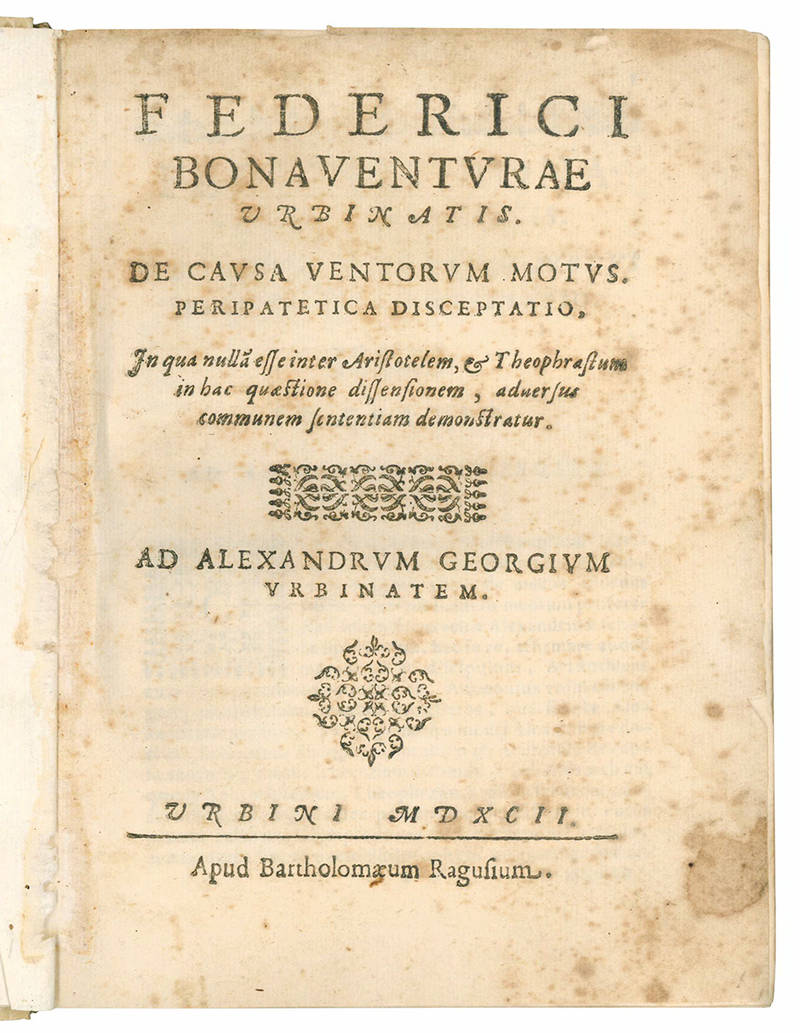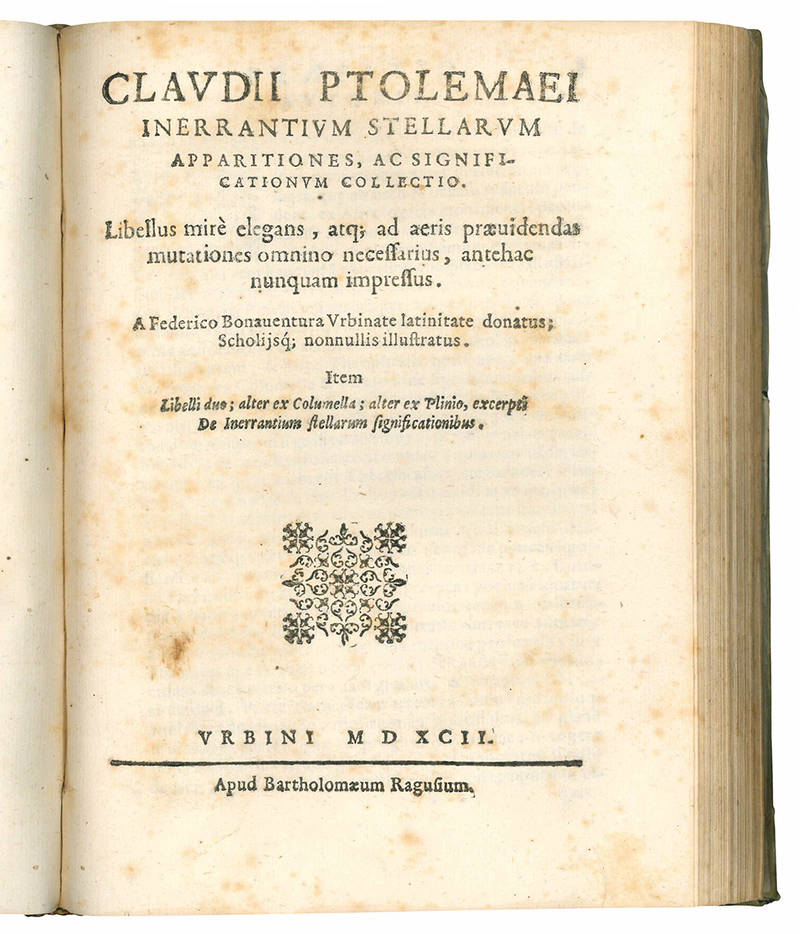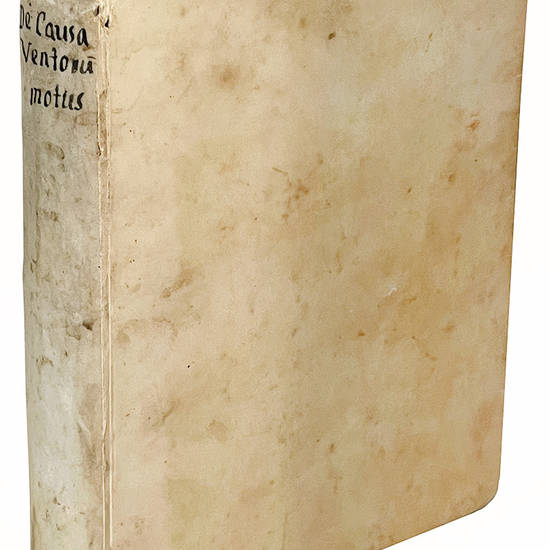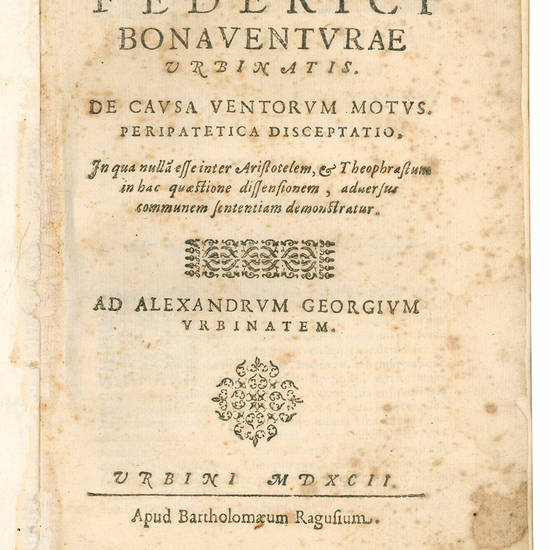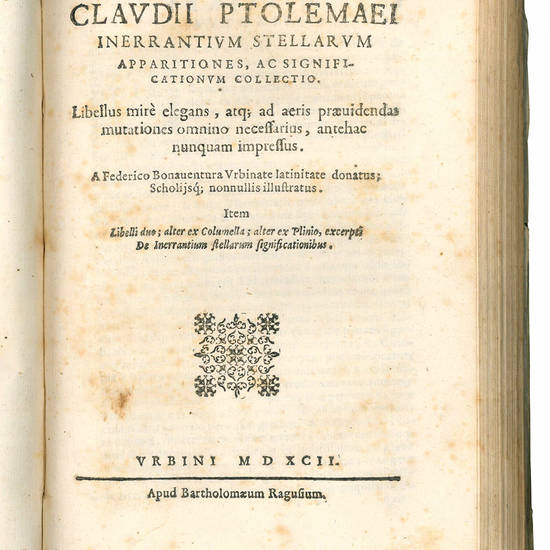De causa ventorum motus. Peripatetica disceptatio, in qua nulla esse inter Aristotelem, & Theophrastum in hac quaestione diffensionem, adversus communem sententiam demonstratur. Ad Alexandrum Georgium Urbinatem
Autore: BONAVENTURA, Federico (1555-1602)
Tipografo: Bartolomeo Ragusi
Dati tipografici: Urbino, 1592
(bound with:)
EIUSDEM. Pro Theophrasto, atque Alexandro Aphrodisiensi, De vero tempore ortus, atque occasus Orionis, Apologia. Tribus libris distincta […] Ad clarissimum mathematicum Io. Antonium Maginum Patavinum. Urbino, Bartolomeo Ragusi, 1592.
(bound with:)
PTOLOMAEUS, Claudius (100-178)-BONAVENTURA, Federico ed. (1555-1602). Claudii Ptolemaei In errantium stellarum apparitiones, ac significationum collectio. Libellus mirè elegans, […] A Federico Bonaventura Urbinate latinitate donatus; scholijsque nonnullis illustratus. Urbino, Bartolomeo Ragusi, 1592.
Three works in one volume (198x147 mm). I: 195, [1 blank] pp. Collation: a-z4, aa4, bb2; II: 142, [2] pp. Collation: A-S4. The final leaf is a blank; III: 120 pp. Collation: a-p4. Contemporary vellum with inked title on spine. Manuscript shelf mark on the front flyleaf “Col. 12 scaf. 5a”. Title page of the first work soiled, worm track to the inner and lower margin of a group of leaves occasionally affecting the text, some foxing and staining.
First editions. Bonaventura's first datable work is a version of Temistius' paraphrase of Aristotle's De anima (books 2 and 3 appeared in 1582-83, book 1 in 1588). Later he devoted himself to works of erudition on ancient astronomical and meteorological texts, publishing in Urbino in 1592, at Bartolomeo Ragusio's press, the In errantium stellarum apparitiones ac significationum collectio of Ptolemy (with parallel texts by Pliny and Columella, and an extensive commentary), an Apologia in favor of Theophrastus and Alexander of Aphrodisia De vero tempore ortus atque occasus Orionis, written in Italian and turned into Latin by Pier Paolo Florio, a De causa ventorum motus to support in almost two hundred pages the concordance in the matter between Aristotle and Theophrastus. The following year, always in Urbino, he published the first and only part of his Anaemologia […] de affectionibus, signis, causisque ventorum, which provided in sixty pages the amended text of De ventis and other meteorological writings of Theophrastus, followed by nearly four hundred pages of scholarly commentary. All these prints, remained unsold, were then put back into the market in Venice in 1594, with a changed title page, by F. de' Franceschi, with no better avail (L. Firpo, Bonaventura, Federico, in: “Dizionario Biografico degli Italiani”, XI, 1969, s.v.).
Edit 16, CNCE6932; Adams, 3281.
[10535]

